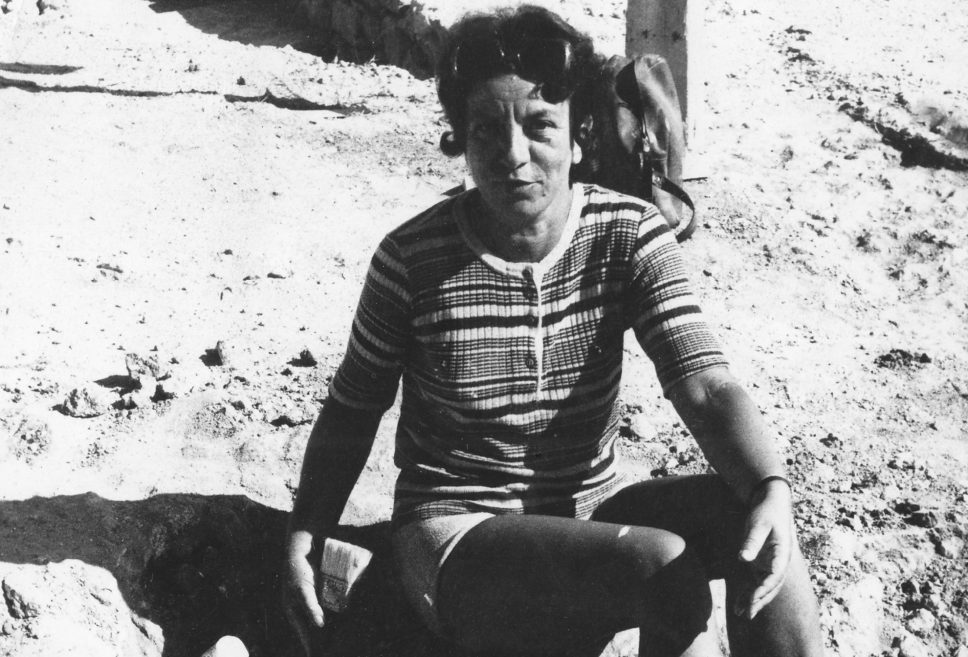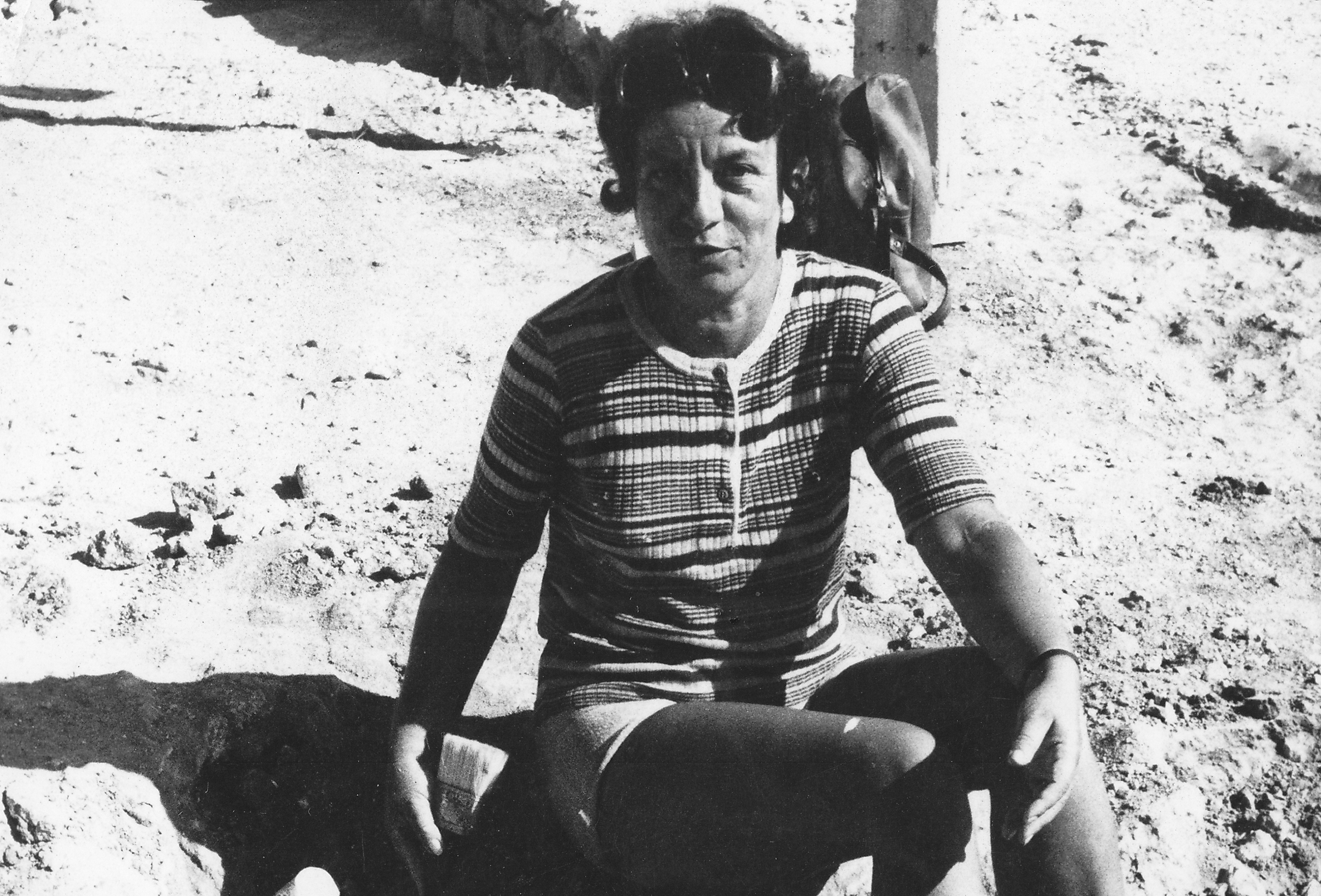This will not be a scientific biography – that appeared elsewhere – but rather a personal recollection of an extraordinary person whom I knew and esteemed, and whom I will keep in my memory forever.
I met Professor Zofia Sztetyłło in Warsaw in 1984 before departure for my first excavation season in Paphos. Back then, little did I think that we would spend so much time together, not only in Cyprus. After many years, I learned that it was thanks to her mentorship and the support from Prof. Maria L. Bernhard, my maestro, that the head of the Paphos expedition, Prof. W.A. Daszewski, invited me to join in.
Mrs. Zosia, because that’s what we called her in the team (with her consent), was a one-person institution, an extraordinary figure: an outstanding scientist, a great companion of the Paphian peaks and valleys. A good person, orderly, systematic, extremely hardworking. Thanks to her, I learned the secrets of Greek epigraphy and transport amphora stamps, which were the main focus of her research. Not only did she supervise the excavation work and analyze the epigraphic material and other finds, but she also kept the expedition’s modest finances in hand, ran the kitchen, and cooked, usually alternating with Elżbieta Daszewska and the other members of the expedition in these duties (we were all on kitchen duty then).
She was popular and considered to be a friendly, outgoing person. This is what one of the participants of the Paphos excavations wrote to me: “I spent two seasons in Nea Paphos in the 1980s and the Professor proved that team members and expedition staff can feel at the excavations like in a family. I will always remember… ”. A student who took part in the excavations, recalled: “we always remember her, her openness, brilliant humor, unpretentiousness towards students.” This was one of the important elements that built a positive aura: Mrs. Zosia introduced a homely atmosphere, she “mothered” us all. Whenever someone mentions her, the words “Charming Mrs. Zofia, I remember her well” are most often used. Of course, our Cypriot friends and archaeologists called her Sofia (her name means “wisdom” in Greek), and the Cypriot workers who used to work with us respected her extremely and often brought fruit, sweets that she loved, or some other tokens of their esteem.
Professor Sztetyłło had an extraordinary gift of colorful storytelling, and when she recalled various stories from the life of the archaeological missions in which she participated, she had us rolling in the aisles. And these missions had been numerous: Mirmeki and Kalos Limen in Crimea (1950s, then the territory of the USSR), Palmyra in Syria, Tell Atrib and Alexandria in Egypt. Her most long-lasting association was with two missions headed by W.A. Daszewski: Nea Paphos, for over 20 excavation seasons from 1971 until 1997, and Marina el-Alamein in 1987–1996. In Paphos, she was virtually – although informally – the director’s right hand; he discussed everything with her, and only she was able to confer various problems and mediate compromises. She was the mainstay of peace, even when everyone else was already losing their nerve Zofia’s cheeks only twitched (and that was how I could tell that she was really upset), but she would never raise her voice or react inappropriately!
In Paphos, we participated in 12 campaigns together and for some of that time I had the pleasure of sharing a room with Mrs. Zosia; this also brings people closer and allows you to get to know each other better. Her entire professional career was associated with the University of Warsaw, and when she reached a certain age, she started talking about retirement. We urged her sincerely and earnestly not to do it, because she could still be working, and we wanted her to keep coming to Paphos. She remained with us for a few more campaigns, but then withdrew, although her energy and endurance were still enviable. I also persisted in persuading Mrs. Zosia to write down her memories, because her memory was a veritable mine of information about Polish Mediterranean archaeology and the Research Station (and then Centre) in Cairo, and about the research conducted by this institution. Unfortunately, she did not take up this thread.
It is difficult to accept that Professor Zosia passed away. I will remember her holding her inseparable cigarette and a tiny cup of coffee decorated with roses. It is a great regret that I will never again hear that characteristic invitation, uttered in a warm tone when we would meet in Paphos at the beginning of each campaign: “Dochka, come sit here with me and tell me, how are things.”
Αιωνἰα της η μνἠμη!
(in a free translation: Honor to her memory!)
Paphos, 09.11.2020
Ewdoksia Papuci-Władyka


